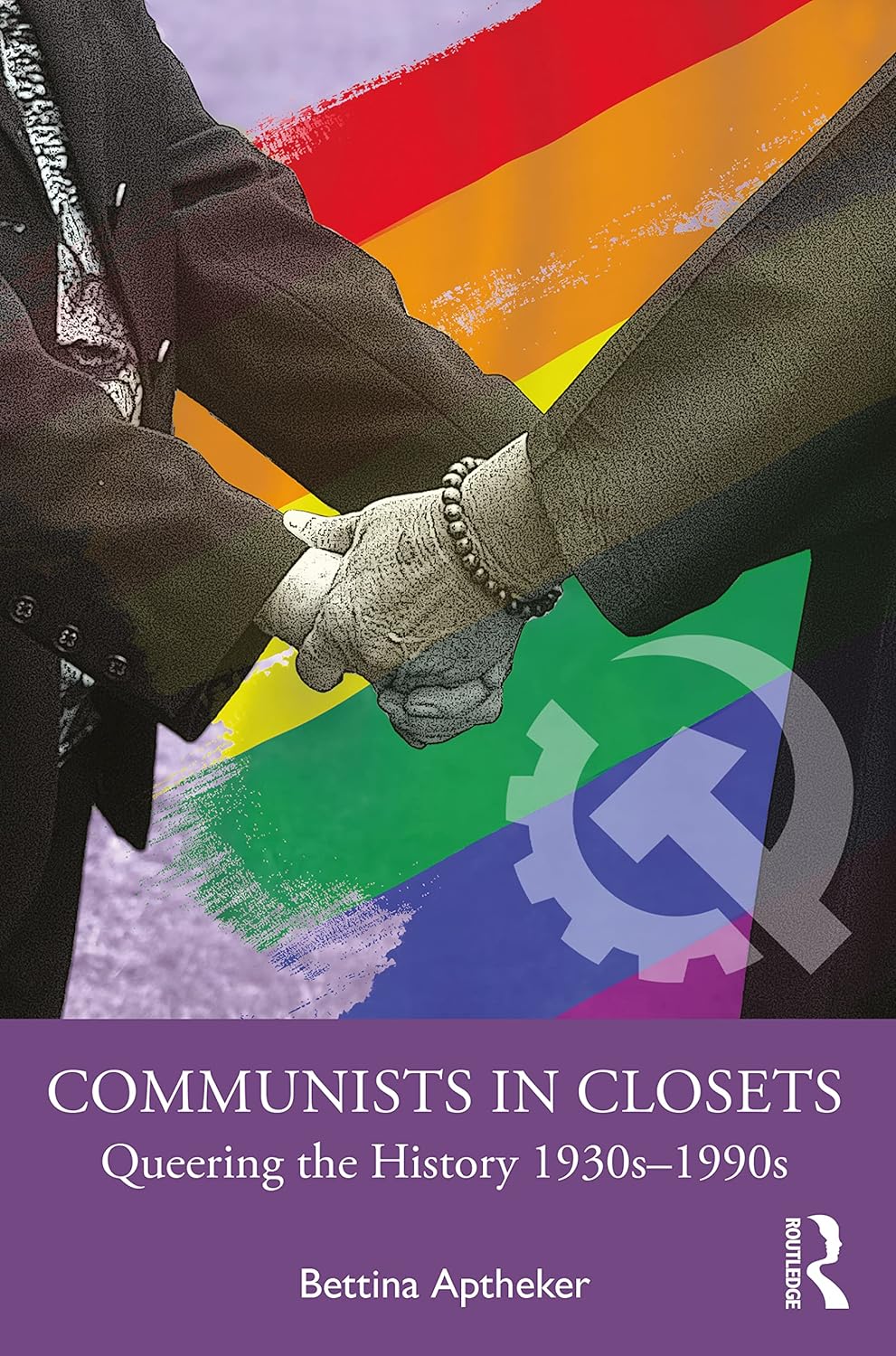Review of Communists in Closets: Queering the History 1930s-1990s by Bettina Aptheker

Communists in Closets: Queering the History 1930s-1990s
Bettina Aptheker
Routledge, 2022, 270 pages
$49.99
Reviewed by Julia M. Allen
In an elegant, seamless fusion of memoir, oral history, and archival research, Bettina Aptheker offers us and future generations the gift of our history. Perhaps we recognize the names of Lorraine Hansberry, Eleanor Flexner, or Harry Hay. But how much do we know of the multidimensionality of their lives? And why have we probably never heard of the accomplishments of Betty Millard, Maud Russell, David Graham DuBois, or Victoria Mercado?
As she narrates these lives, Aptheker extols all that they achieved through their devotion to anti-racist, anti-capitalist, and feminist projects through the Communist Left—Lorraine Hansberry’s plays that contain echoes of her studies with W.E.B. DuBois at the Communist Party-supported Jefferson School; Eleanor Flexner’s Century of Struggle that grew from the syllabus that she constructed for the same school; Harry Hay’s courageous founding of the first gay rights organization, the Mattachine Society, based on the Communist theory of a “historically oppressed cultural minority.” She also reveals and celebrates the partnerships that sustained these remarkable women and men.
At the same time, she mourns the damage done and the losses caused by the mid-century insistence on silence, a silence that was embraced and enforced by the Communist Party as well as by almost all legal and medical authorities. In some cases, the closets are so deep and the closet doors so tightly closed that she can only speculate on the pain contained therein. In other cases, she quotes from letters and diaries attesting to the range of injuries. She puzzles over the party’s unusually long failure to understand and include a range of emotional and sexual expressions among members. Beginning in 1938, some members were deliberately expelled on the basis of homosexuality; others chose to leave for a variety of reasons, some unable to continue living “under deep cover.” Aptheker shares her own years-long struggle to maintain both her fidelity to the social justice work of the Communist Party and her awareness of her attraction to women, a struggle that finally ended when she left the party—though not her work for social justice—and began to build her life with her partner Kate.
Communists in Closets bears reading more than once to absorb all that it has to offer. That said, Routledge has apparently decided to jettison their copy editors, a disrespectful move that has made the reading experience unnecessarily difficult. Future researchers will have to be aware, for example, that if they want more information on the McCarran Act, they will not find it under “McCarren Act.” They may also wish, as I did, that the book included a bibliography and a separate listing of archives consulted.
Such wishes notwithstanding, Communists in Closets is a mind and heart-opening gift from a brilliant scholar, providing a solid foundation for future research with which we can continue to build a more inclusive history.
Julia M. Allen is Professor Emerita, English, Sonoma State University. She is the author of Passionate Commitments: The Lives of Anna Rochester and Grace Hutchins, SUNY Press, 2013 and co-author with Jocelyn H. Cohen of Women Making History: The Revolutionary Feminist Postcard Art of Helaine Victoria Press, Lever Press, 2023.
"Empowerment comes from ideas."
― Charlene Carruthers
"Your silence will not protect you."
— Tourmaline
"Gender is the poetry each of us makes out of the language we are taught."
— Leila Raven


